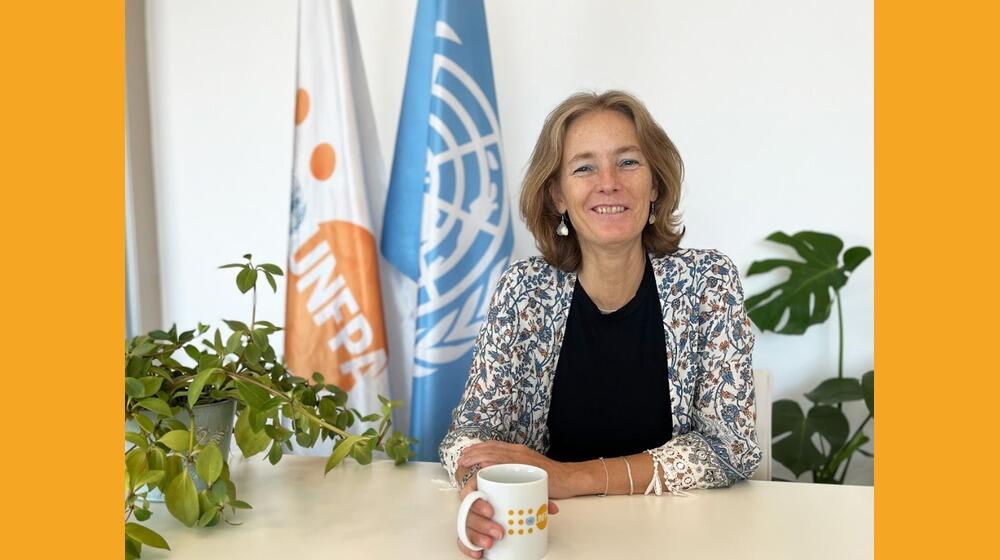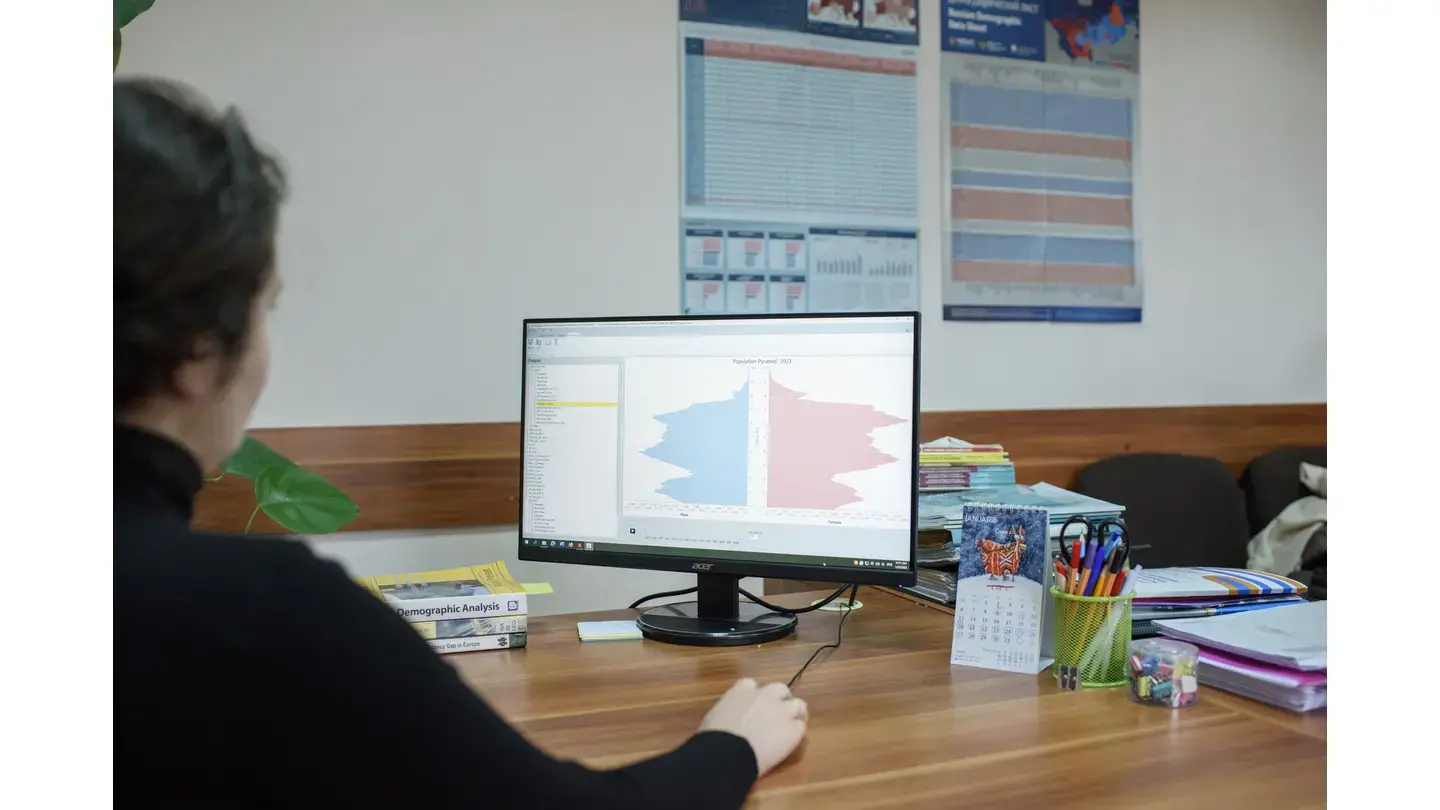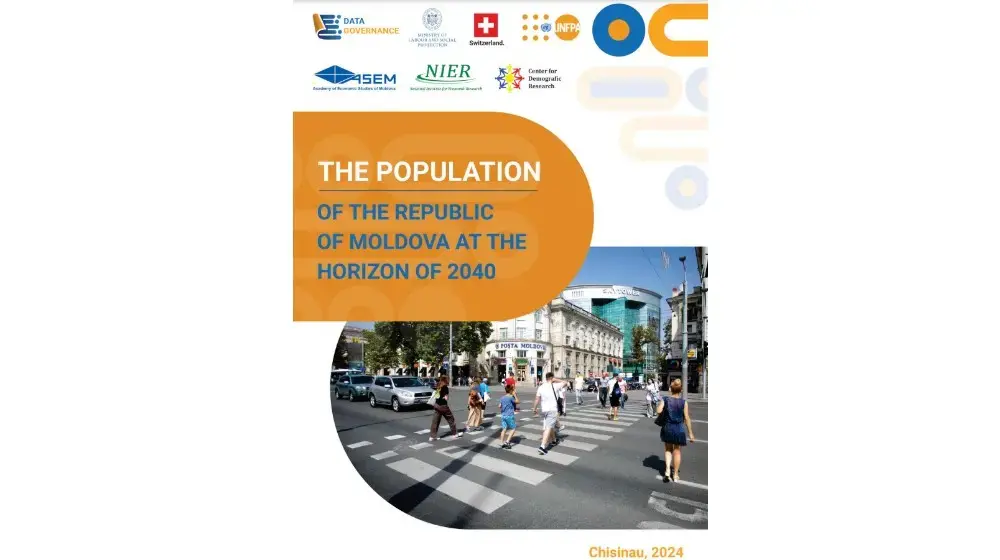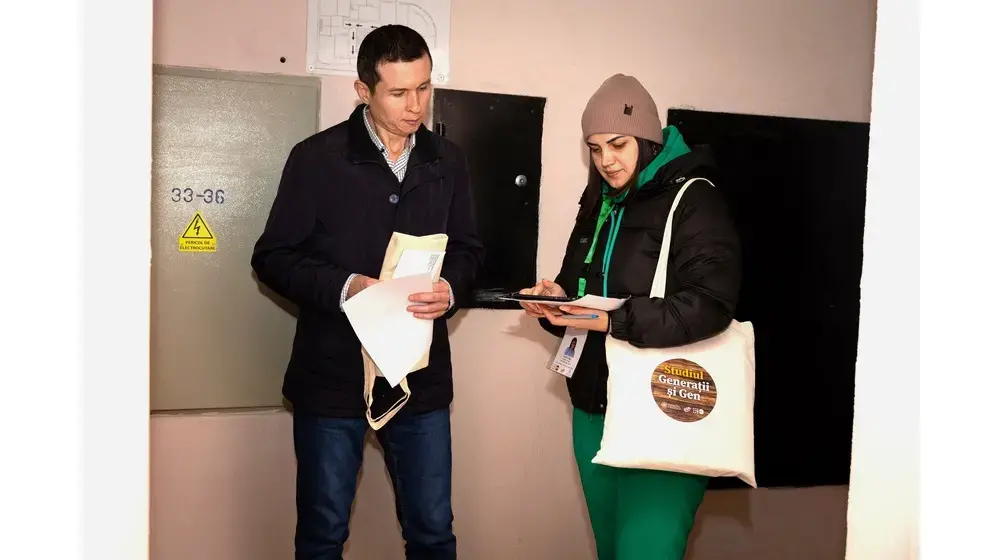Moldovan and European experts convened in Chișinău, on 25-26 March 2024, for an international conference centered on data-driven governance, focusing on regional demographic trends and corresponding response strategies. In attendance as part of an official visit to the Republic of Moldova, Florence Bauer, the Regional Director of UNFPA for Eastern Europe and Central Asia, provided insights on these trends in an interview with Radio France International.
The transcript of the audio interview is presented below.
RFI: What prompted the convening of a conference dedicated to data-driven governance in Chișinău?
Florence Bauer: Moldova, like other countries in Eastern Europe, faces a unique demographic landscape. It has a low fertility rate, meaning women have fewer children. At the same time, we have an aging population - and here's the good news, people are living longer lives, but there's also the outflow of young people, who leave abroad. This is why it's a unique demographic situation, with a certain level of anxiety in society.
This is happening in Moldova, but also in other countries in Eastern Europe. In this context, it is crucial to bring together experts from different countries in the region and reflect on data governance. What does this mean? With quality data, countries can predict demographic trends, understand, and analyze them. But most importantly, to ensure that this data is available in a transparent manner and helps in shaping public policies.
RFI: The international conference "Data-Driven Governance for Effective Policymaking" is taking place just ahead of the launch of the Population and Housing Census in the Republic of Moldova, which is set to begin on April 8. What recommendations do you have for our country?
Florence Bauer: We are very pleased that UNFPA Moldova is collaborating intensively with the Government in Chișinău to organize the Population and Housing Census, which will begin soon. Congratulations to Moldova for doing this. The Population Census is probably the most complex statistical data collection exercise, but also the most important, to obtain new data about the country's situation. And it's nice to see the preparation process, the innovations that are being brought in. For example, for the first time, Moldova will use tablets for data collection, which is very innovative. This also means data protection, in an effective way. So, we are glad to be part of this process.
Furthermore, it is important for the population to be receptive and participate in the Census. I take this opportunity to invite citizens to contribute to this exercise. The Population and Housing Census is a unique opportunity, which does not happen very often, and where each person has the opportunity to ensure that their voice is heard and taken into account, thus contributing to the country's policymaking.
RFI: Moldova is engaged in a complex process of accession to the European Union. But considering the demographic situation you described above, namely aging, out-migration, low fertility, how attractive do you think our country is for the EU?
Moldova faces demographic trends like those of neighboring states, even with countries in Western Europe. What is important to consider? There is no ideal population figure for all states. We have countries with small populations that are successful. But we have countries with large populations that are not doing so well. What is essential is not how many citizens are in a state, but how much is invested in people. This means investing in human capital, citizens having access to education, health, and the labor market.
In this context, I would like to refer to three categories of people who need more investments.
Firstly, young people. They need access to training, to have a job, to be motivated to stay in the country.
Secondly, investments need to be made in women's skills. When we talk about women's access to the labor market, they still have much lower access than men. And this is a part of society whose potential is not fully utilized but can equally contribute to the country's sustainable development.
And the third category - the older population. When we invest in older people, they age healthily, continue to contribute to society's development in various ways. It can be professionally, as volunteers, providing help to families or the community.
UNFPA and authorities are working very closely to understand all these demographic trends and come up with response measures.
But what can the Republic of Moldova learn from the experience of other European states when it comes to demographic trends?
There are several extremely interesting experiences in countries in the region. States that invest in Active Ageing centers, Youth Centers, which Moldova also does. At the same time, the experience of countries regarding women's access to the labor market through the development of family-friendly policies is interesting. Moldova, too, is quite advanced in this regard. This is an extremely useful initiative and involves creating conditions for women to have, at the same time, a career they desire and the number of children they want to have. Families need support with childcare services. A woman, if she wants, should be able to have both a professional career and children at the same time. For example, I have a career I love, children I love, and a happy family. Including, thanks to my husband, who is very participatory and takes care of the children, so men's involvement and creating equality policies for women and men are extremely important.
The regional conference, organized in Chișinău, has provided us with this opportunity, to exchange experiences and learn from each other, to adopt good examples and continue the progress.
This interview was initially broadcasted on Radio France International/Republic of Moldova and Romania on March 26, 2024.





